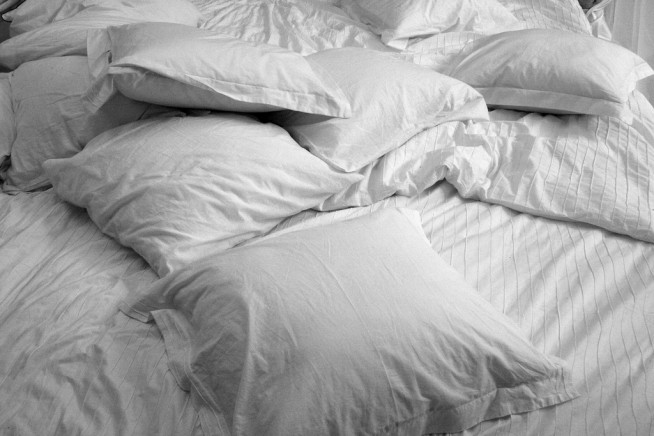Because I’m working on Before and After, my new book about habit-formation, I constantly talk to people about their habits, and as I heard about people’s sleep habits, something puzzled me.
For me, sleep is a self-reinforcing habit; I feel so much better when I get enough sleep that I find it fairly easy to respect my bedtime.
As I talked to more and more people, I began to understand. In most cases, these are folks who schedule very little time for themselves. They race around, weekdays and weekends alike, without a break, and their only open time comes at night, when nothing more can be expected of them.
Some use that time to try to catch up on work—to knock off a few emails, to read through a report. For many people, it’s the only time they can work without fear of interruption, and they want to get a jump on the next day.
Other people use the time not for work, but for play. The kids are asleep, the trash is out, office emails have stopped, and they can finally relax.
People don’t want to lose that precious slot of time, even to sleep. It feels like a deprivation—and people hate to feel deprived.
A friend said, with surprising vehemence, “I work at my law firm from morning to night. If I don’t have that hour or two at the end of the day, to read, to relax, I have nothing for myself.”
“So what are your hours?”
“I get home around nine, I never go to bed before midnight, I get up at 6:30 a.m.”
“You might work better and more efficiently if you got more sleep.”
“If I went to sleep earlier, in order to feel sharper the next day, that would just seem like a work-related decision, too. That would mean the firm is getting more of my time.” He shook his head. “No way.”
This it’s-my-only-time-to-myself phenomenon is a big habits challenge. @gretchenrubin
(Click to Tweet!)
“Rest, relax, and enjoy” is #4 of the Essential Seven, and many of those who cling to that last outpost of open time are reluctant to trade it for the restorative repose of sleep.
Do you find it hard to turn out the light, even when you know you’d feel better if you got more sleep? How do you think about that trade-off?
Gretchen Rubin is the author of the #1 New York Times Bestseller The Happiness Project—an account of the year she spent test-driving the wisdom of the ages, current scientific studies, and lessons from popular culture about how to be happier—and the recently released Happier at Home. On her popular blog, The Happiness Project, she reports on her daily adventures in the pursuit of happiness. For more doses of happiness and other happenings, follow Gretchen on Facebook and Twitter.
Image courtesy of Luc De Leeuw.












